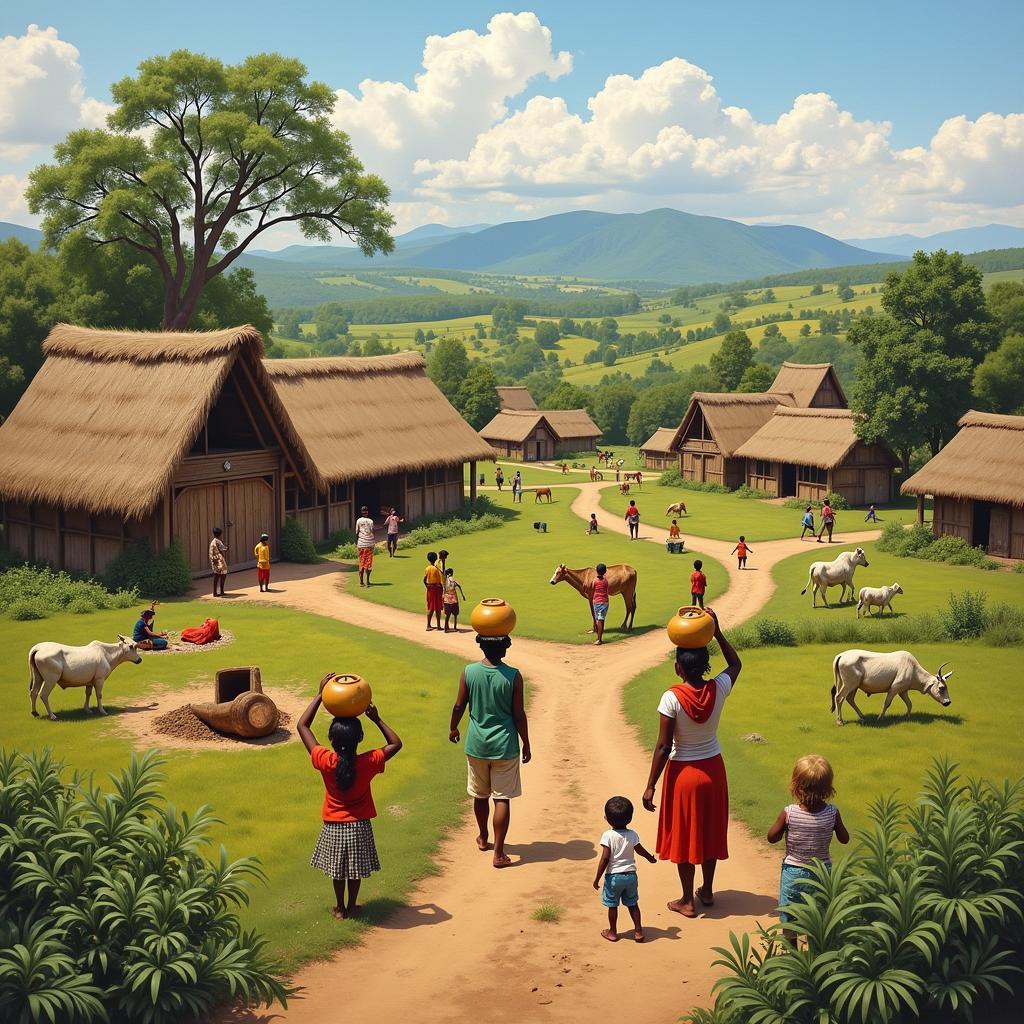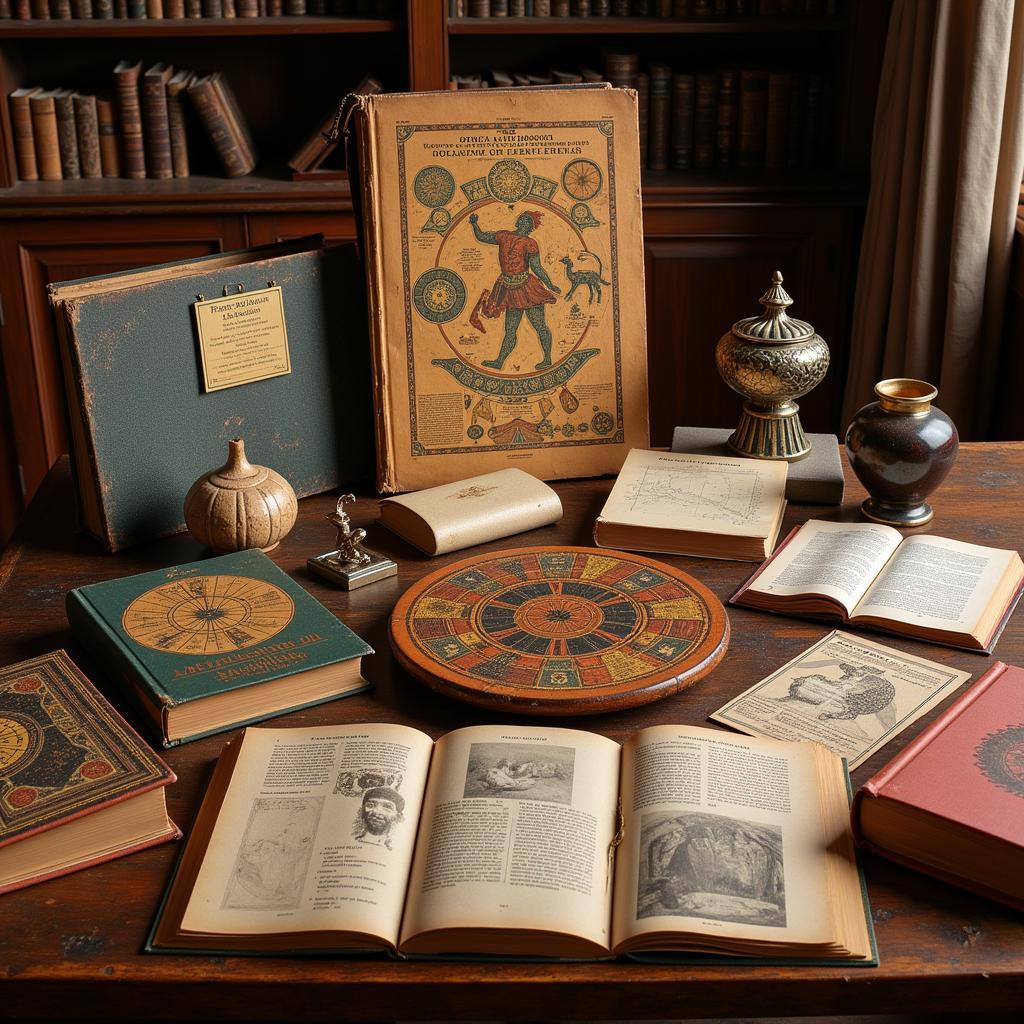Exploring the Vibrant World of African Drama and Performance
African Drama And Performance are a vibrant tapestry woven from ancient storytelling traditions, powerful rituals, and contemporary expressions. From the heart of bustling cities to remote villages, performance plays a vital role in African societies, reflecting their diverse cultures, histories, and philosophies. This article delves into the rich history, diverse forms, and ongoing evolution of African drama and performance.
A Journey Through Time: The History of African Drama and Performance
Before written scripts became common, oral traditions were the cornerstone of African performance. Griots, storytellers, and praise singers held esteemed positions, preserving and transmitting history, genealogy, and cultural values through captivating narratives, music, and dance. These performances were not mere entertainment; they were integral to community life, education, and spiritual practice. Early forms of drama were often intertwined with rituals, ceremonies, and festivals, blurring the lines between performance and everyday life. The arrival of colonialism brought new influences and challenges, leading to the development of new theatrical forms that often reflected the socio-political landscape.
After this captivating introduction to the history of African performance, let’s look at some images capturing the essence of these powerful traditions.
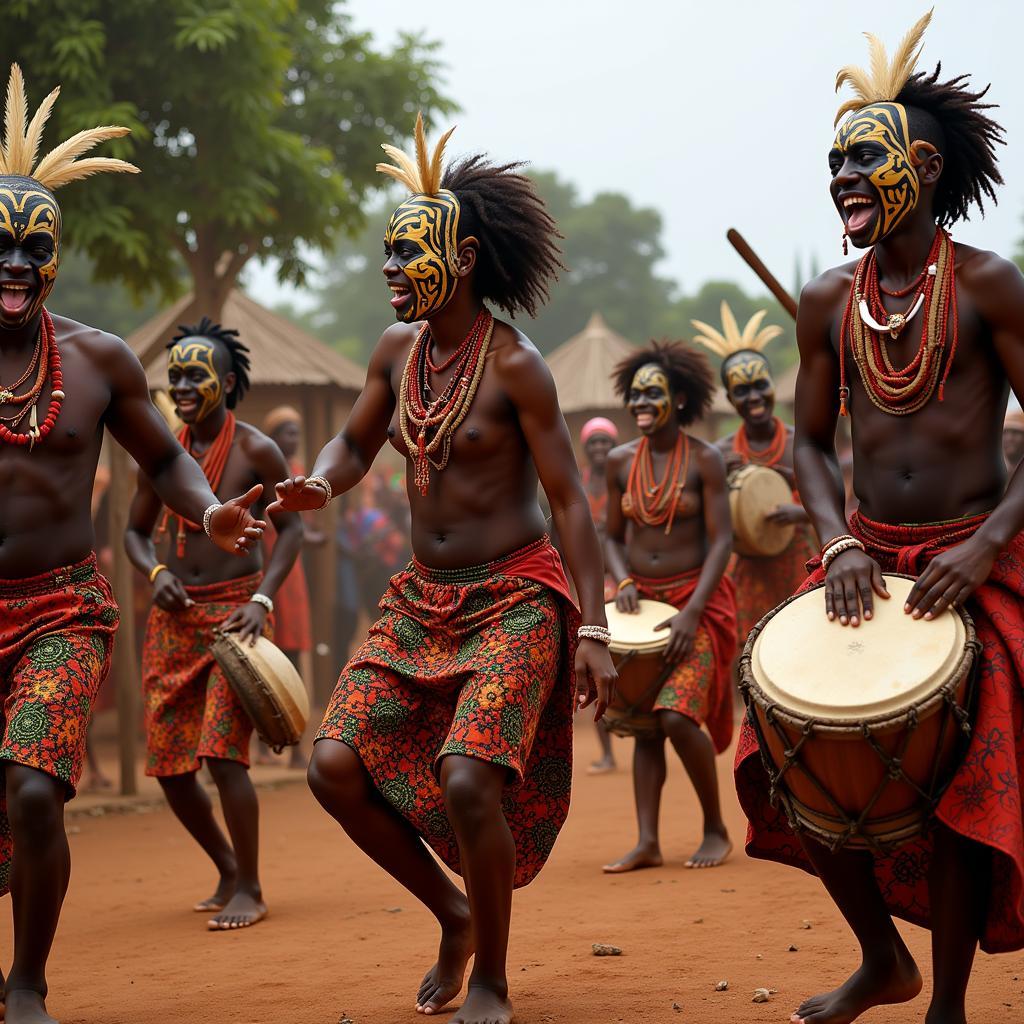 African Ritual Performance with Masks and Dance
African Ritual Performance with Masks and Dance
Diverse Forms of African Drama and Performance
African drama and performance encompass a wide spectrum of styles and genres. From masked dances and puppet shows to contemporary plays and experimental theatre, the continent’s artistic landscape is incredibly diverse. Total Theatre, a popular form, combines music, dance, dialogue, and spectacle to create a holistic and immersive experience. Many performances incorporate elements of improvisation and audience participation, fostering a sense of community and shared experience. Furthermore, African drama often draws inspiration from contemporary social issues, providing a platform for critical commentary and social change. For example, performances often explore themes of colonialism, post-colonial struggles, gender inequality, and the challenges of globalization.
Let us delve into some thrilling African adventure movies that further explore these themes. African adventure movies list provides a curated selection of films showcasing the continent’s diverse landscapes and compelling narratives.
The Power of Storytelling: African Narrative Traditions
Storytelling remains a powerful force in African drama. Traditional narratives, passed down through generations, serve as a rich source of inspiration for contemporary playwrights and performers. These stories often explore universal themes of love, loss, courage, and the struggle between good and evil, resonating with audiences across cultures and time. The art of storytelling in African performance is more than just reciting tales; it’s a dynamic interplay of words, gestures, music, and audience interaction.
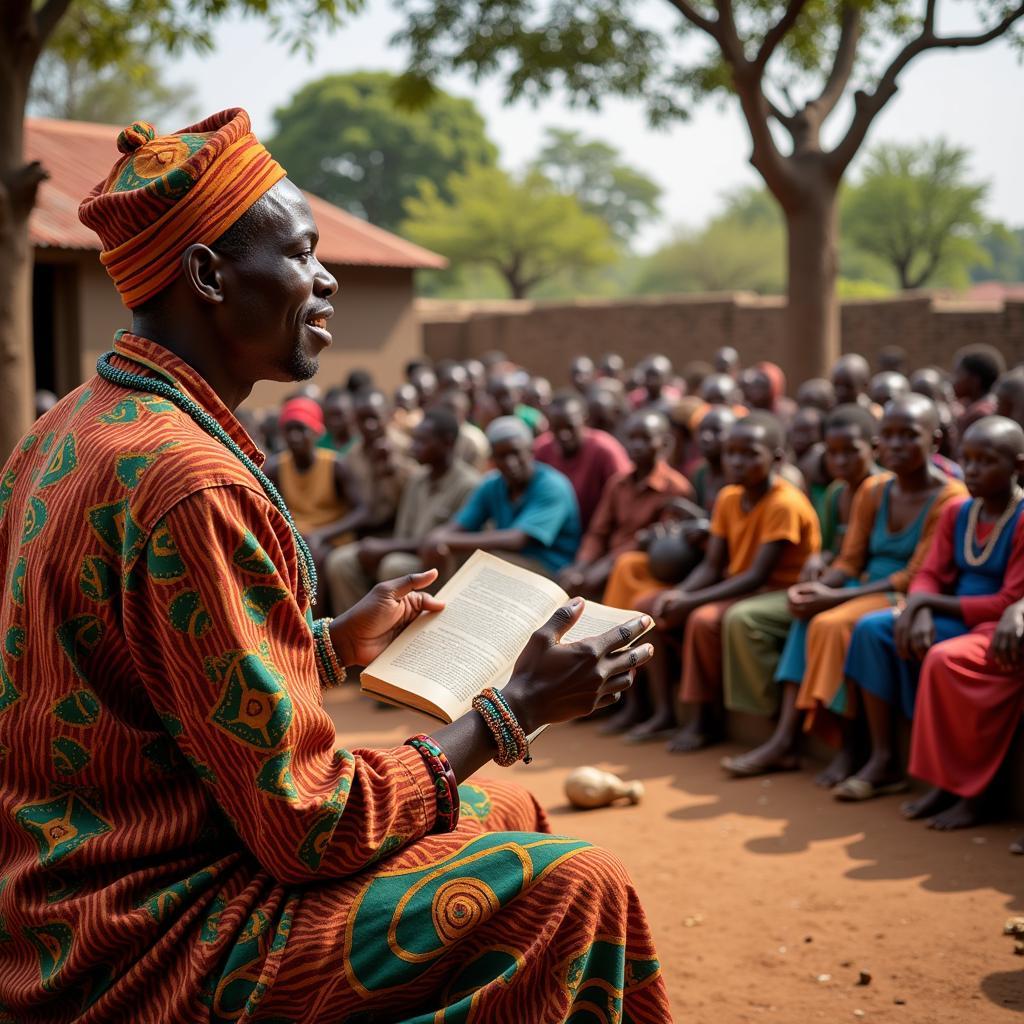 African Storyteller (Griot) at a Village Gathering
African Storyteller (Griot) at a Village Gathering
What is the Significance of Masks in African Performance?
Masks hold deep symbolic meaning in many African cultures, representing spirits, ancestors, or mythical figures. They are often used in ritualistic performances, adding a layer of mystique and power to the theatrical experience. The craftsmanship of these masks is often exquisite, reflecting the rich artistic traditions of the continent.
Let’s take a look at some captivating [African drawings of animals](https://omenkamag.com/african-drawings-of animals/), which often incorporate similar artistic sensibilities and symbolic meaning found in mask making.
Dr. Anika Nkosi, a renowned scholar of African performance studies, states, “Masks are not simply costumes; they are portals to another realm, connecting the performers and audience to the spiritual world.”
How Does Music and Dance Enhance African Performance?
Music and dance are inseparable from African drama. Rhythmic drumming, vibrant singing, and expressive movements create a powerful and immersive experience for both performers and audiences. These elements often carry symbolic meaning, enhancing the narrative and emotional impact of the performance. From traditional ceremonies to contemporary theatrical productions, music and dance play a vital role in conveying stories, expressing emotions, and celebrating African culture.
The Future of African Drama and Performance
African drama and performance continue to evolve, adapting to changing times while preserving the rich traditions of the past. New generations of artists are experimenting with innovative forms and exploring contemporary themes, pushing the boundaries of theatrical expression. The increasing global interest in African arts and culture provides exciting opportunities for these artists to share their stories and perspectives with a wider audience.
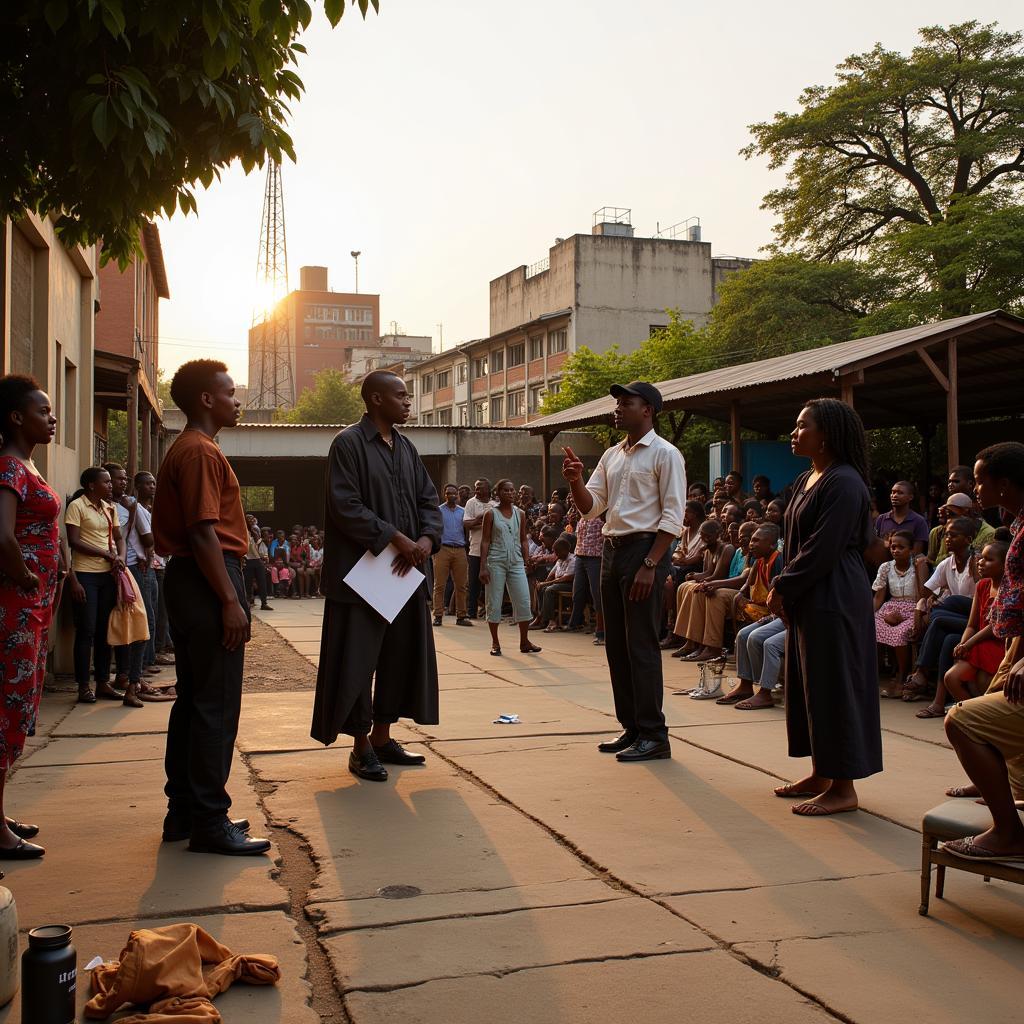 Contemporary African Theatre Performance in an Urban Setting
Contemporary African Theatre Performance in an Urban Setting
Mr. Kwame Asante, a celebrated playwright and director from Ghana, observes, “African theatre is a vibrant and dynamic force, constantly reinventing itself while staying true to its roots. It is a theatre of hope, resilience, and boundless creativity.”
Conclusion
African drama and performance offer a captivating window into the diverse cultures and rich history of the continent. From ancient storytelling traditions to contemporary theatrical innovations, the power of performance continues to resonate in African societies. By exploring this vibrant world, we gain a deeper understanding of the human experience and the enduring power of art to connect, inspire, and transform. As we conclude this exploration of African drama and performance, we encourage you to delve deeper into this fascinating world.
FAQ
- What is the role of a Griot in African society?
- What are some common themes explored in African drama?
- How does African performance differ from Western theatre traditions?
- What is the significance of masks in African rituals?
- Where can I find resources to learn more about African drama and performance?
- How has colonialism impacted African performance traditions?
- What are some contemporary examples of African drama and performance?
For more information and assistance on any of your questions regarding African arts and culture, please feel free to contact us. Phone: +255768904061, Email: kaka.mag@gmail.com or visit us at Mbarali DC Mawindi, Kangaga, Tanzania. Our customer service team is available 24/7.
